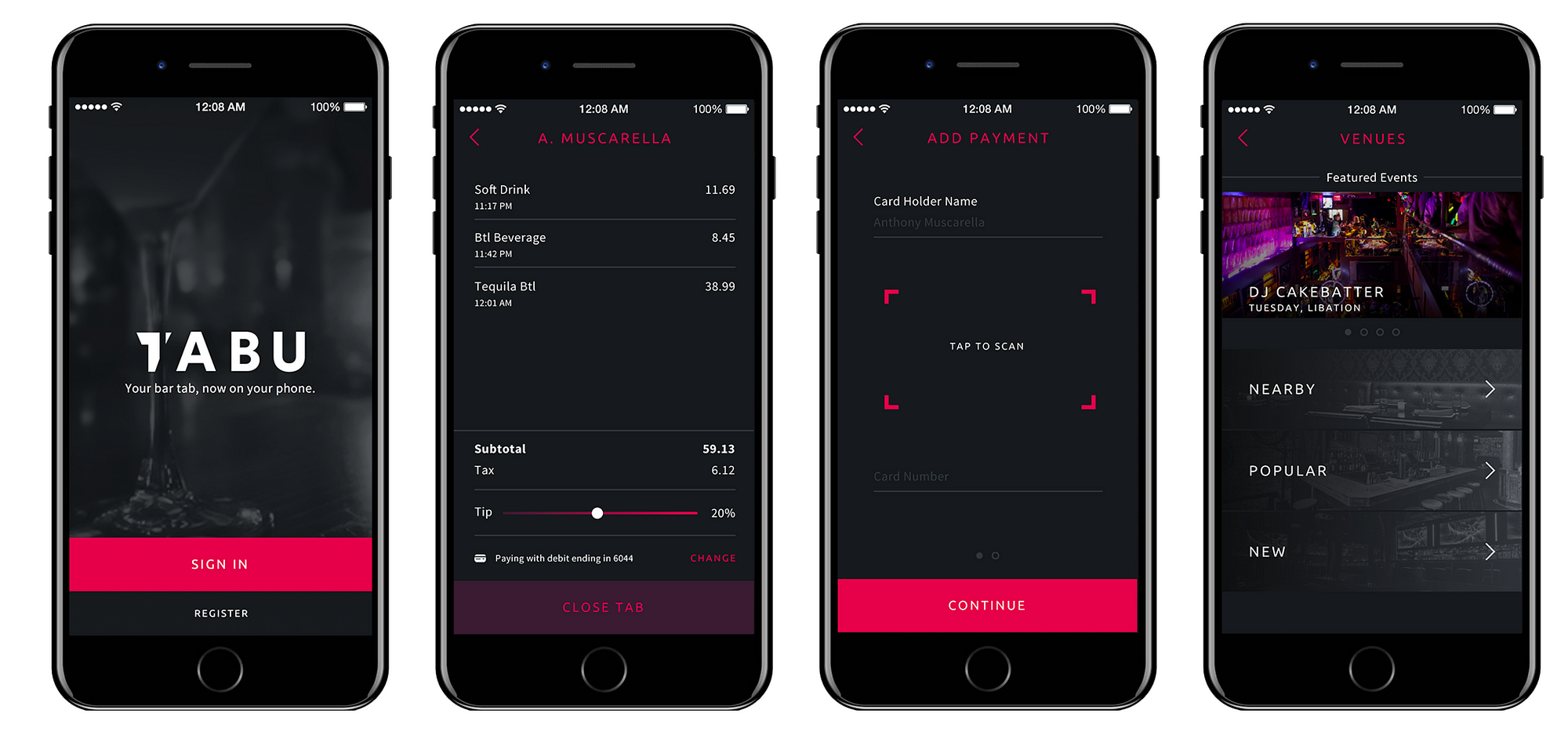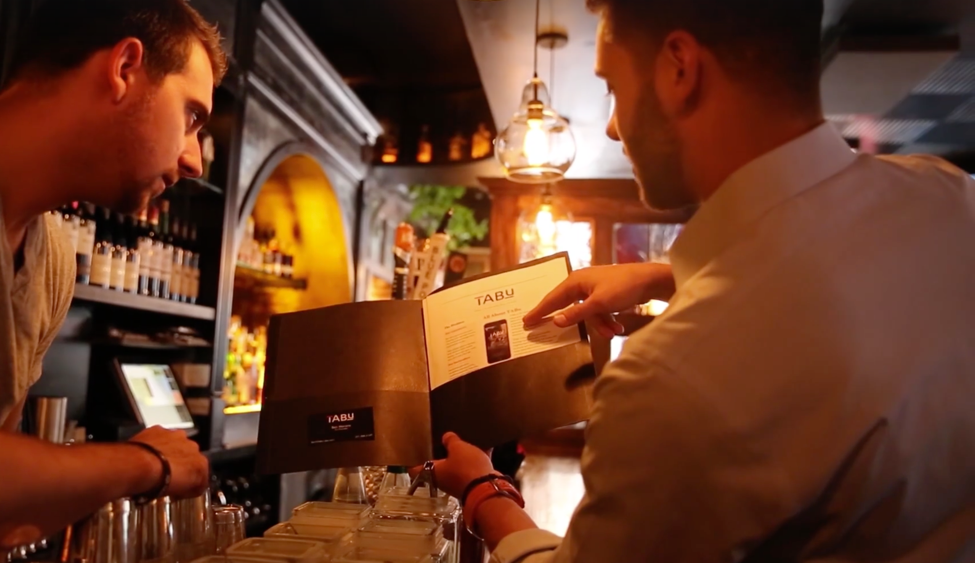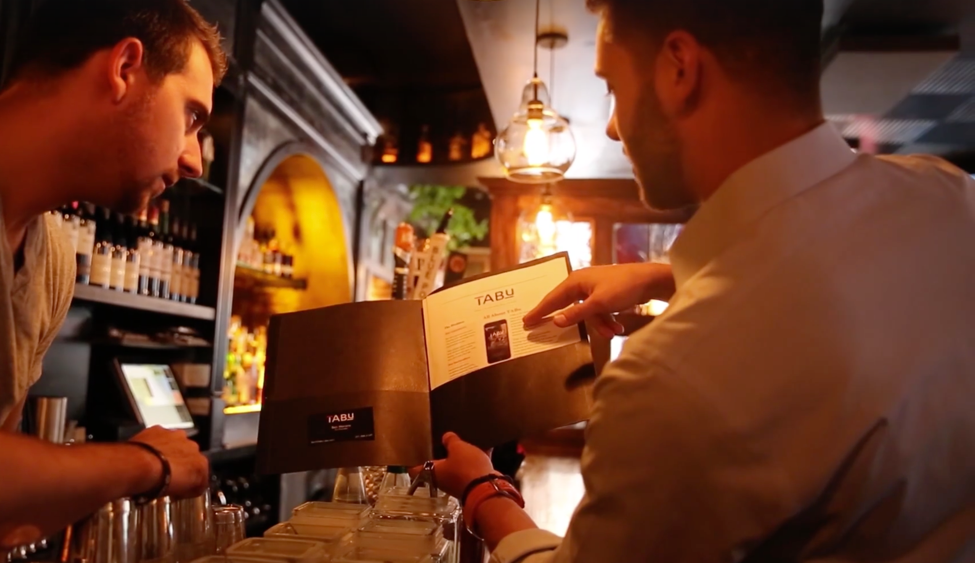If you find yourself in a sleek, black-glass modern bar, a quintessence of 21st century New York nightlife, you might sense a slight discrepancy in its aesthetics when it comes time to pay. Once the bartender lugs out the clunky index card box of credit cards, her frantic shuffling for your card, though warranted, interrupts the slenderness of the mood that your empty cocktail just set. For the particularly nervous, this rush might fuel their irrational worry that the card has miraculously disappeared. But the newly launched app TABu keeps the mood’s elegance in check, by providing a mobile platform for opening, viewing, splitting, and paying for a bar tab.
Developed by Ben Marans (21) and Kyra Durko (19), TABu is a testament to the entrepreneurial serendipity that arises when ambitious, smart students are living together in tight quarters with slow elevators. In NYU’s Weinstein Hall, the same dorm where Rick Rubin and Russell Simmons founded Def Jam Records, Marans and Durko met, discussed Durko’s initial idea for a bar-payment app, signed an NDA, and spearheaded industry research in February 2016. Today, their developed product has ten New York venues signed on.
By allowing users to open a tab and checkout from their phone, TABu eliminates what Marans believes to be “the most antiquated payment process in New York in the twenty-first century.” The app integrates with the venue’s POS (point-of-sale) system, transferring each order placed in the system to the customer’s mobile tab for payment. For customers, the app ideally removes the aggression of a congested bar from their nightlife experience. Better yet, at the night’s end it saves the particularly spirited from stumbling out while forgetting their credit card in the insecure plastic box.

As for appealing to the venues, Marans discovered that customers are approximately three times more likely to continue ordering drinks with an open tab. He also learned that on average, closing out a tab takes three and a half minutes per customer, totaling five hours and fifty minutes for a turnout of one hundred. This estimate considers the time a waiter needs to catch the customer’s name, run to the box, search for their card, enter their name on the POS system, print the receipt and get their signature, and file the signed slip. As Marans envisions it, TABu will “sell back” time to the venues, allowing them to focus efforts on new sales.
___
In the summer of 2016, while their friends scavenged for internships, Marans and Durko embarked on the uphill endeavor that is entrepreneurship, heading into only their sophomore year of college. Their successful pitch to several scattered angel investors for an undisclosed amount financially kick-started TABu’s research and development. Marans interviewed over five hundred bar owners about their patrons’ habits, and called another one thousand surveying their POS systems. The founders attended networking events and became involved in NYU’s E-Lab (Entrepreneurial Lab) Accelerator Program. Most importantly, they spoke to everyone they knew about their project to grow their network. These efforts led to an angel investment in December 2016 for $60,000, as well as their first signed venue, Le Reve.

However, the process leading up to these successes was inevitably riddled with naïve and regrettable missteps. TABu’s gravely uninformed pick for their first development team left them with a non-compatible iOS app, after placing a “large” bet, according to Marans, on the project. In another instance, a deceptive investor promised the team a $150,000 seed investment that never appeared. Marans reflected, “I had no idea what I was doing… I didn’t have the audacity that I have now, I didn’t understand tech apps at all…So they totally charmed… us.” However, despite these hiccups, Marans kept on with the assurance that “it’s a long game, it’s a long hustle, but the tipping point is very quick. And when that tipping point happens, it’ll be crazy. And all of a sudden, it’s gonna’ be big.”

Marans’ eyes widened and cheeks flustered as he explained, “everything I’m trying to do is disrupting what people think is possible,” for he believes that’s “the true nature of entrepreneurship.”
Co-Founder Kyra Durko declined a request for interview.









